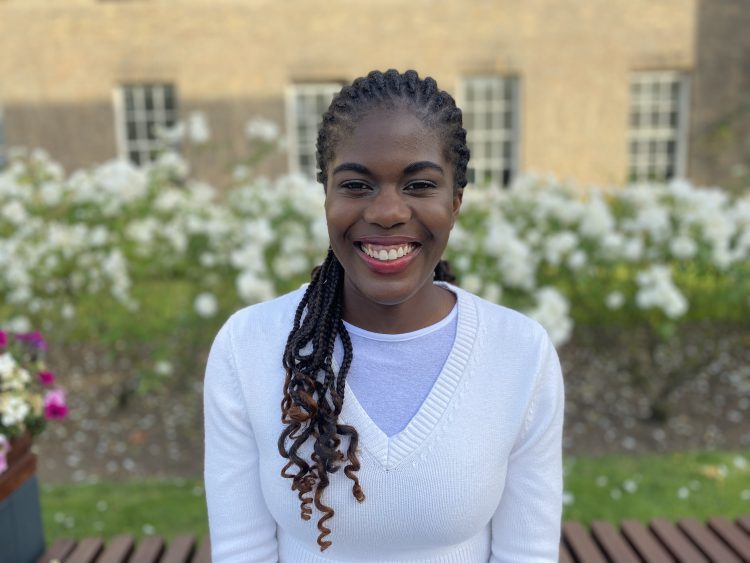A University of Leicester medical student has appeared on BBC’s Lifeline appeal programme, presented by actor Colin Firth, to talk about her stammer.
24-year-old Phobe Avbulim was aware of having a stammer when she was eight years old, but she hasn’t let it hold her back from reaching her goals.

She got involved with the charity, Action for Stammering Children, the national charity for children and young people who stammer, and their families, in 2017, and is continuing the good work today.
Filming for the appeal programme, which is going out ahead of International Stuttering Awareness Day on Sunday (Oct 22), took place at the University of Leicester earlier this summer.
Phoebe said: “It was hard work but a huge amount of fun to take part in the programme and raise awareness of the charity and extremely pertinent that Colin Firth presents it as he famously portrayed King George VI in The King’s Speech, a man who also suffered from the condition.
“My stammer affected me a lot at school. I became withdrawn and less confident in myself – especially when I was a teenager – which is completely opposite to my natural personality,” said Phoebe.
“It felt like I had a massive label on me, and it was all people could see and hear when I spoke so I was very self-conscious, but ultimately my experiences have helped shape who I am today and I’m much more confident and happy in myself.
“These are some of the reasons I was drawn to Medicine, I’m compassionate, empathetic and want to help and make things better for others if I can. I like being around other people and hearing their stories and experiences.”
Phoebe is part of the Youth Panel for Action for Stammering Children. She has been involved in several projects to help raise awareness about the condition. In 2018 she took part in the BBC Rickshaw Challenge, cycling over 400 miles as part of a team to raise money for Children in Need on behalf of the charity.
Now, she is helping to influence future research into stammering as a member of the steering group for the Top 10 research priorities into stammering project, which is led by the charity in collaboration with the James Lind Alliance.
The steering group team has created a questionnaire survey inviting young people who stammer, their family and friends and also professionals who work with them to submit the questions they want answered by stammering research.
Phoebe said: “One thing I try to tell others with a stammer is that it doesn’t have to define you. People are more interested in what you have to say and not how you say it. One in every 100 people has a stammer, which is equivalent to one per cent of the population.
“I’ve met so many people who stammer since leaving secondary school, so it’s much more common than you think. It can be hard to find support networks for stammering because it’s not always something people talk about, but that’s why Action for Stammering Children exists – for information and support. My main message would be – you’re not alone.”
BBC One Lifeline appeal aired on Sunday 15 October, and this morning (Tuesday 17 October). It will be available to view on BBC iPlayer over the next three weeks.



